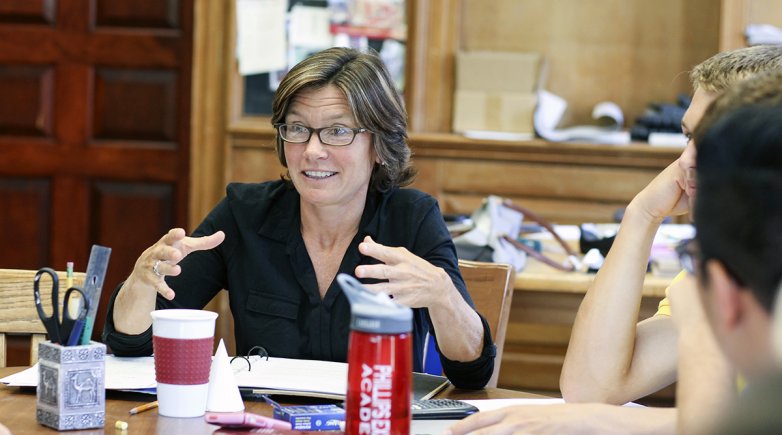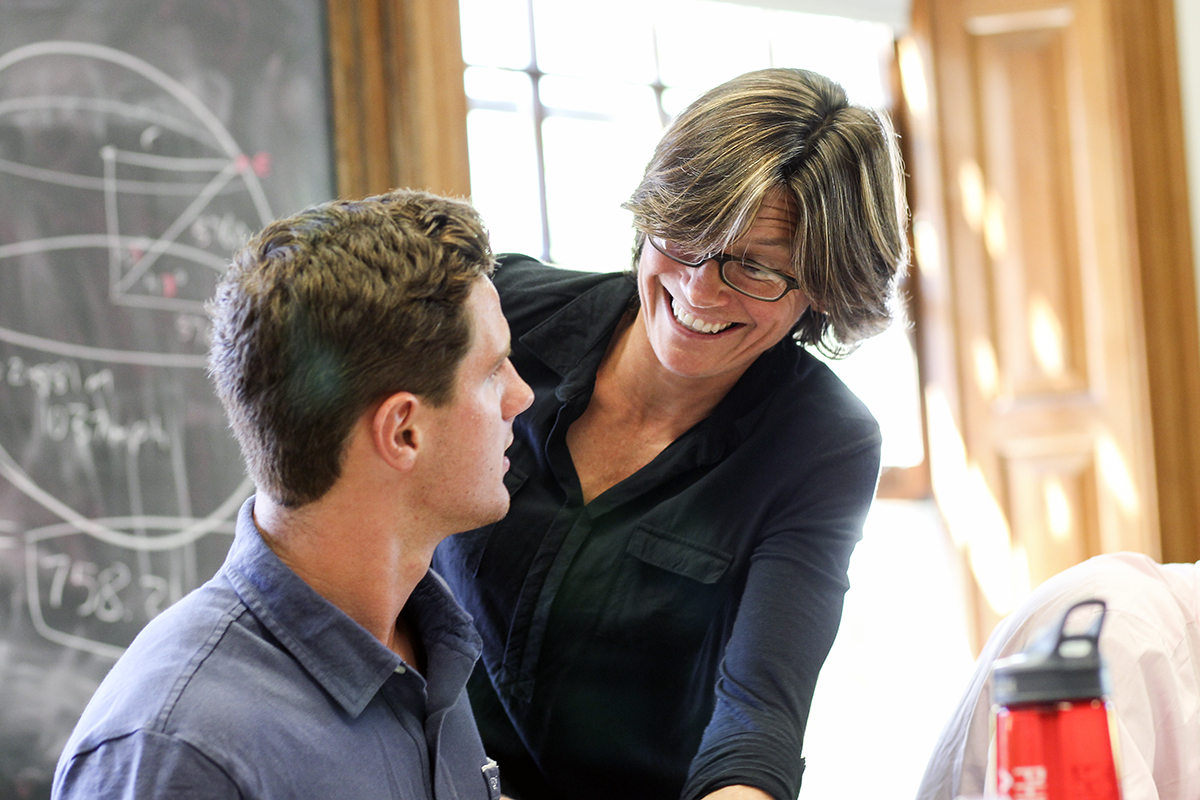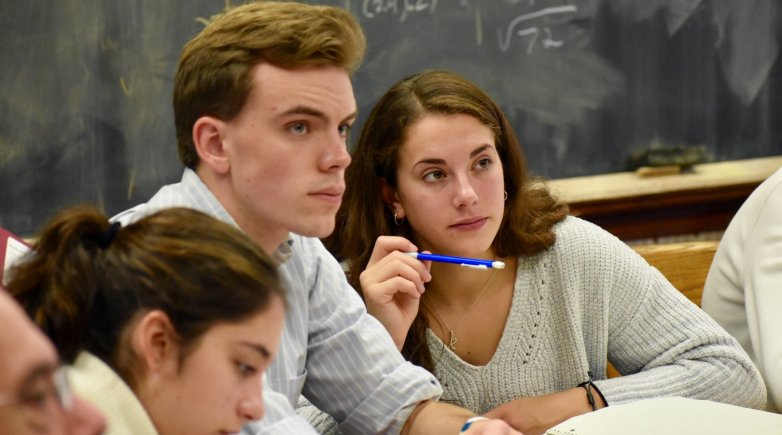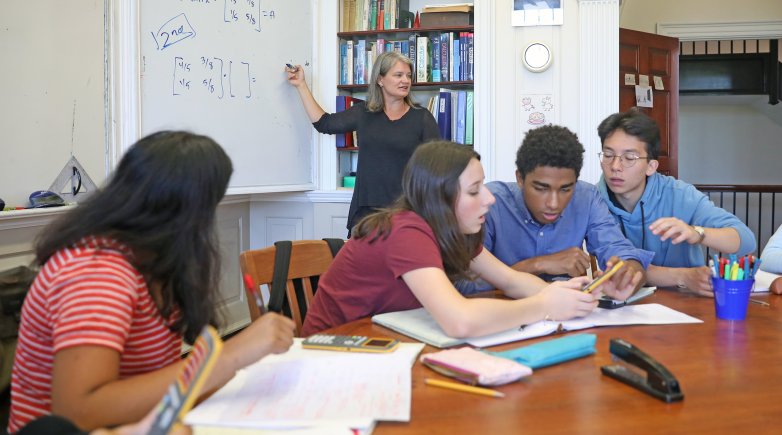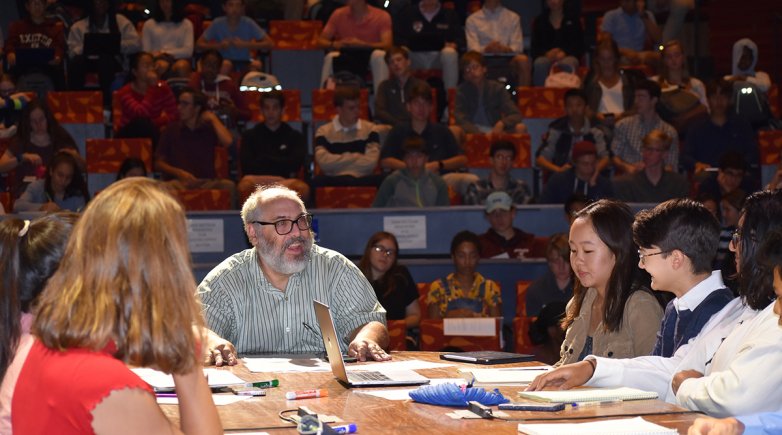Mathematics Department update
Gywn Coogan discusses designing a math curriculum that encourages students to collaborate.
Gwyn Coogan '83 first experienced the Academy as a two-year boarding student and was drawn back nearly 20 years later to teach. Prior to her faculty appointment in 2002, she earned a bachelor’s degree at Smith College and a doctorate in mathematics from the University of Colorado. A former director of the Exeter Mathematics Institute, Coogan is dedicated to sharing the school’s pedagogy with others and improving math instruction for all students.
Talk to Coogan about Exeter’s Math Department and you’ll find “excellence” and “relevance” are the common denominators — and that is by effort and design. The chair of the department never stops considering new ways to grow and enhance the program for a changing student body. “The students who are coming to our school are coming with a slightly different background than they used to 30 years ago,” Coogan says. “If the curriculum that most kids are learning before they get to our school has changed, we want to change to reflect that, to move them from wherever they are to wherever they think they should go. You have to move kids closer to the edge of mathematics.”
Instead of standard textbooks, Coogan and her team use problem sets, first written by Exeter math faculty nearly 30 years ago specifically for Exonians to build problem-solving skills that emphasize not the answer, but the winding path to get there. And every summer, faculty gather to reevaluate and update each of these 3,700 math problems. “We want problems that are engaging enough that at times you need to talk to your friends about them and get ideas,” Coogan says. “But we also want kids to be able to formulate their own questions.”
